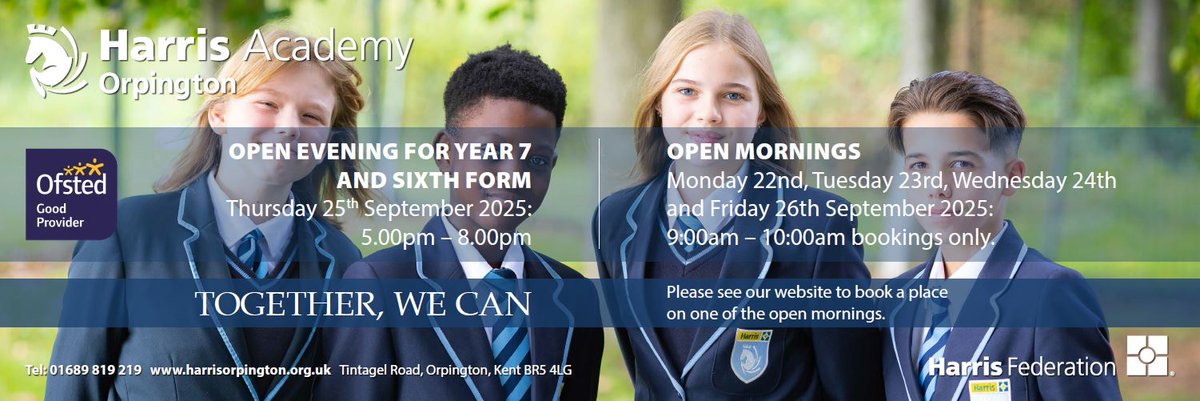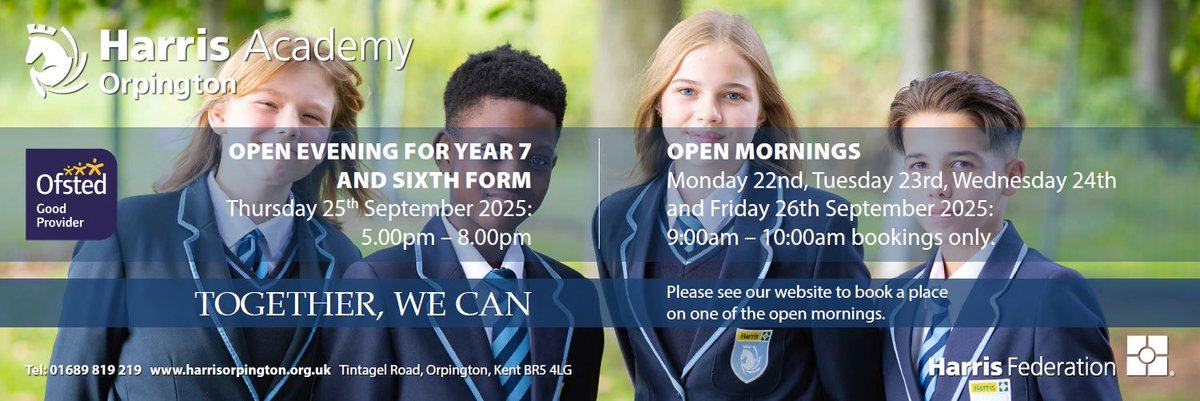Science
“Science is the process of learning about the natural world through observation and experimentation.”
When the new accredited GCSE specifications were first published in 2016, a new Science curriculum was devised, which took a cohesive approach to the delivery of substantive and disciplinary knowledge with the aim of students continually building on their prior knowledge and using that knowledge flexibly.
Required practicals and working scientifically lessons were introduced from the very beginning of the secondary Science curriculum in Year 7 and then continue through to year 11. After consulting educational research, we decided that a spiral curriculum would best prepare our pupils for a series of six terminal external assessments at the end of Year 11. We split the content into 10 big ideas, introducing foundational concepts in Year 7 and continuously building upon these ideas by adding substantive and disciplinary knowledge each academic year, thus generating a 5-year spiral curriculum.
We believe that all pupils should gain a level of scientific competency allowing them to succeed in all areas of their life. In order to do this, we have created a curriculum that offers our pupils the opportunity to gain a deep and broad knowledge of our exciting, innovative and ever-changing subject. This allows pupils to develop a range of knowledge and scientific skills, including scientific enquiry, literacy, numeracy and evaluation.
Science skills are highly desirable by employers; they demonstrate the ability to problem solve, integrate effectively with others, utilise high numeracy and literacy skills and to assess and evaluate to a high standard.
What is the intention of the curriculum?
A five-year journey
As all pupils study Science from Year 7 through to Year 11, we have removed the KS3/KS4 border and instead made a fluid five-year plan to cover all aspects of the national curriculum as well as the requirements of the GCSE specifications. This is not simply a five-year GCSE course, nor is it a condensed two-year KS3 curriculum, but a truly spiral curriculum with a cohesive approach to imparting substantive and disciplinary knowledge to our pupils.
Intended content
At the academy we have adopted a spiral design for understanding topics of the curriculum. We have found that by re-visiting the 10 key big ideas in Science throughout a 5-year journey, students develop a deeper understanding of the big ideas by having multiple interactions with these concepts. We hope that by using the spiral approach, students will be better prepared in applying scientific concepts to more abstract contexts. Students study a range of topics in science each year to allow them to make connections and links between the main disciplines in science rather than view them as three separate entities. In chemistry for example, students learn about elements in year 7, types of reaction in year 8, bonding, structure and properties of matter in year 9, quantitative chemistry in year 10 and rate and extent of chemical change in year 11 whilst in biology
There is a bespoke year 9 syllabus that consolidates some aspects of the KS3 national curriculum and provides a thorough grounding for starting the GCSE specification. It provides direct link to the real world and different innovations in science. The syllabus incorporates a mixture of the three main disciplines in Science: Biology, Chemistry and Physics to encourage more lateral thinking from students so they can draw on several aspects of science within the same task – a vital skill for higher demand GCSE and beyond. There has also been the purposeful inclusion of some separate science only topics and topics beyond the national curriculum of KS3 and KS4 as we felt all students had an entitlement to learn about them.
In later years pupils follow the AQA GCSE specification which allows pupils to follow either the Combined Science Trilogy route or the Separate Science route.
How is this implemented?
Teachers follow a centralised rota to ensure all students are being taught the same content across all groups in each year.
Teachers ensure full coverage of the curriculum by using the syllabus documents which outline the substantive and disciplinary knowledge for each lesson, prior and future learning, and the lesson’s learning objectives or when learning GCSE, the specification.
In all lessons, teachers follow an identical lesson structure which includes: a ‘Do now’, I do, We do, You do and Test. Lessons start with a Do now which is retrieval based to consolidate students’ understanding of the 10 big ideas over the 5 year journey.
In the early years, pupils follow a rota of short units that cover the national curriculum with most units including at least one required practical (which like GCSE, are assessed in the assessments) and one working scientifically lesson. These lessons provide an opportunity for disciplinary knowledge to be appropriately linked to the substantive knowledge.
In later years, specialist teaching takes place with Year 10 Trilogy pupils receiving three 80-minute lessons per week whilst Year 10 Separate Science students receives five 80 minute sessions. Year 11 have three 80 minutes and one forty-minute lessons – one session each for Biology, Chemistry and Physics. Required practicals and working scientifically skills are embed throughout the curriculum. The additional two 80 minutes sessions for year 10 separates and one 40 minutes for year 11 is designed to cover separate only content and exam-based practices respectively.
In science we aim to encourage all students to think like scientists through the process of enquiring during practical investigations. All lesson titles are based on a scientific question which aim to deepen student understanding on the key scientific concepts and develop their understanding using balanced reasoning, interpreting data and drawing conclusions from scientific enquiry.
In order to ensure there is consistency within our science teaching, we as a department and school offer the following support:
- A PowerPoint presentation with objectives, key visuals and activities for each lesson
- A ‘Talk like a scientist’ learning mat
- Pupil worksheets
- Any relevant practical activities
- Suggested homework activities
- Health and safety information relevant to all activities
- Teaching and Learning CPD
- Coaching and modelling expectations within classroom practice and facilitate new strategies
How do we judge the impact of this curriculum?
Assessment for learning (AFL) is used within each lesson to assess pupil knowledge retention over short periods within topics and more extended periods from previous topics and even learning from previous years. Teachers can use the information gathered from this AFL to fill gaps in knowledge and drive future teaching and learning.
Pupils are also assessed more formally to judge the impact of the curriculum. There are two main assessment points in all year groups. This data is compared to data from across the Harris Federation for standardisation purposes. Students are also given various other assessments such as topic tests and intervention weeks where they re-visit topics to gain a deeper understanding.


After GCSEs, students may wish to study A-level Science. These lessons explore Biology, Chemistry and Physics in more depth and detail.

Assessments
Assessments in science are important in order to highlight areas where students are doing exceptionally well, and also any grey areas. Using this information, we are able to target such areas and facilitate the consolidation of their learning. Success in science isn’t just based on ‘excellent exam results’ but the key transferable skills students take away with them. However, summative assessments are a large part of our curriculum and are used to evaluate student learning at the end of topics.
There are two main assessment points per year for students in Key Stage 3, two summative assessments for Year 10 followed by two mock exam periods for Year 11 where they are assessed on paper 1 and 2 content. Students are also given various other assessments such as topic tests and intervention weeks where they are able to re-visit topics to gain a deeper understanding. Assessments are marked according to the AQA objectives and are based on GCSE past paper questions and in Year 11 past mock papers.
As Harris Academy Orpington is part of the Harris Federation it allows the science department to use the centralised assessments. This allows our assessment scores to be collected and analysed across all academies in the Federation. For us as a science department is gives us a broader insight into where our students lie in terms of their performance against a large cohort of students across all academies. As a science department we are then able to use this and highlight key content that arises as misconceptions and use our intervention weeks to address these.
Documents
| Science Units of Work Years 7 to 11 | Download |






















